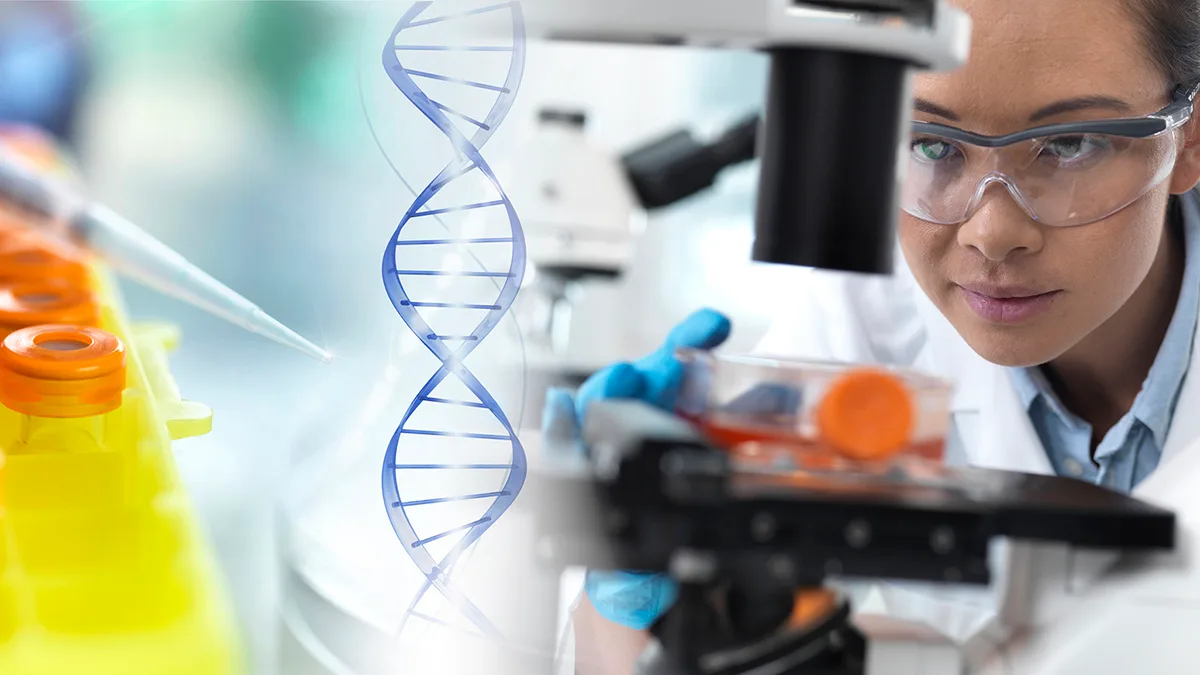
Overview
A new federal report warns that America’s biotech leadership is slipping behind China, calling for a $15 billion investment plan to boost innovation and protect national interests.
Federal report calls for bold biotechnology action to safeguard national security and global competitiveness
The U.S. is falling behind China in the biomedical industry, and the implications go far beyond developing new therapies—the security of the nation is at stake as well. A newly released report argues that the cure lies in strengthening private-sector innovation through investment of at least $15 billion over the next five years to spark private-sector growth and help domestic companies compete with their Chinese counterparts.
Released by the bipartisan National Security Commission on Emerging Biotechnology, the sweeping report outlines how China is outpacing the U.S. in AI-driven drug development, biomanufacturing and genomic data research. The commission calls for a whole-of-government strategy to treat biotechnology not just as a sector of scientific discovery, but as a strategic asset on par with semiconductors and defense systems.
“Biotechnology is becoming a foundation for economic power, military capability, and geopolitical influence,” the commission wrote. “If the United States fails to act, we may never catch up.”
Biotech as A New Kind of Arms Race
The report warns that biotechnology could become a new lever of geopolitical influence, much like semiconductors and rare earth minerals. China has already demonstrated its willingness to restrict exports of key materials in other industries. A similar disruption in biotech— whether by design or circumstance — could cut off access to essential medicines, exposing vulnerabilities in U.S. healthcare, defense and industrial systems.
That risk is compounded by China’s rapidly growing infrastructure. Companies like WuXi AppTec have become global manufacturing hubs for essential ingredients used in drugs for cancer, HIV and other diseases. Nearly 80 percent of U.S. biopharmaceutical firms rely on Chinese manufacturers, according to an industry survey.
In an analyst note on the report, investment banking firm Jefferies described the threat in sharper terms: the U.S. could face a “DeepSeek moment,” a reference to China’s capacity to produce late-stage, clinically validated therapies at a fraction of U.S. costs. With a strong pipeline and proven ability to scale, it may only be a matter of time before China overtakes the U.S. in biotech innovation.
Time Running Out to Unlock Capital and De-risk Scale
While the U.S. helped invent modern biotech, fragmented policy, weak industrial infrastructure and stagnant public investment have created an environment where innovation outpaces implementation. The report warns that the window for decisive action is narrowing.
To catch up, the commission gets specific about what the federal government should do to help early-stage innovators move from discovery to scale.
From research and development tax policy changes and guaranteed government orders to biomanufacturing hubs and shared supercomputers, the recommendations, if put into practice, could reshape the environment for startups across the biopharma industry.
The report proposes a new Independence Investment Fund, seeded by Congress but managed independently, to back companies developing technologies with strategic national importance. At least 30 percent of this fund would be earmarked for biotechnology.
The commission also calls for restoring full expensing of R&D costs, expanding access to Small Business Innovation Research (SBIR) and Small Business Technology Transfer (STTR) grants, and better aligning public funding with projects that show strong commercialization potential.
But money is only part of the plan. The report also lays out six pillars for U.S. leadership: prioritizing biotechnology at the national level, scaling production, integrating biotech into national defense, building data and research infrastructure, training the workforce and deepening partnerships with allied nations.
Among the recommendations are the creation of a White House-level National Biotechnology Coordination Office that would streamline guidance, build digital submission portals and map out clearer review pathways. Other recommendations include guaranteed government purchase agreements for critical products, and a “Web of Biological Data” to consolidate fragmented datasets and accelerate research.
Biotech's Ties to Defense, Food, Medicine and Mars
The report’s scope extends well beyond biopharma. In defense, the commission envisions backpack-sized manufacturing kits that let frontline units produce food, therapeutics or chemicals on-demand. In agriculture, U.S. farmers could benefit from pest-resistant crops and nitrogen-producing microbes that reduce fertilizer use.
In healthcare, the promise is no less dramatic. After the first sickle cell gene therapies were approved in 2023, the report projects that similar curative treatments could emerge for muscular dystrophy, cystic fibrosis and cancer, but only if the U.S. maintains its scientific leadership.
Even outer space enters the conversation: by the 2050s, biotech could allow for the biomining of rare minerals from the moon and Mars.
But those gains won’t materialize, the report said, if adversaries can disrupt U.S. supply chains, manipulate global markets or weaponize genomic tools. The report provides scenarios on how hostile actors might deploy engineered microbes to collapse bridges or infect crops, causing economic havoc without firing a shot.
“We don’t need to out-China China,” the authors wrote. “We need to out-innovate, out-partner, and out-build—faster.”








